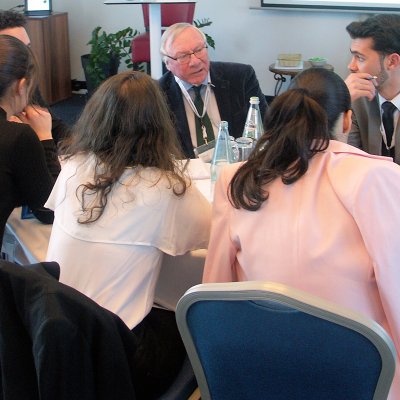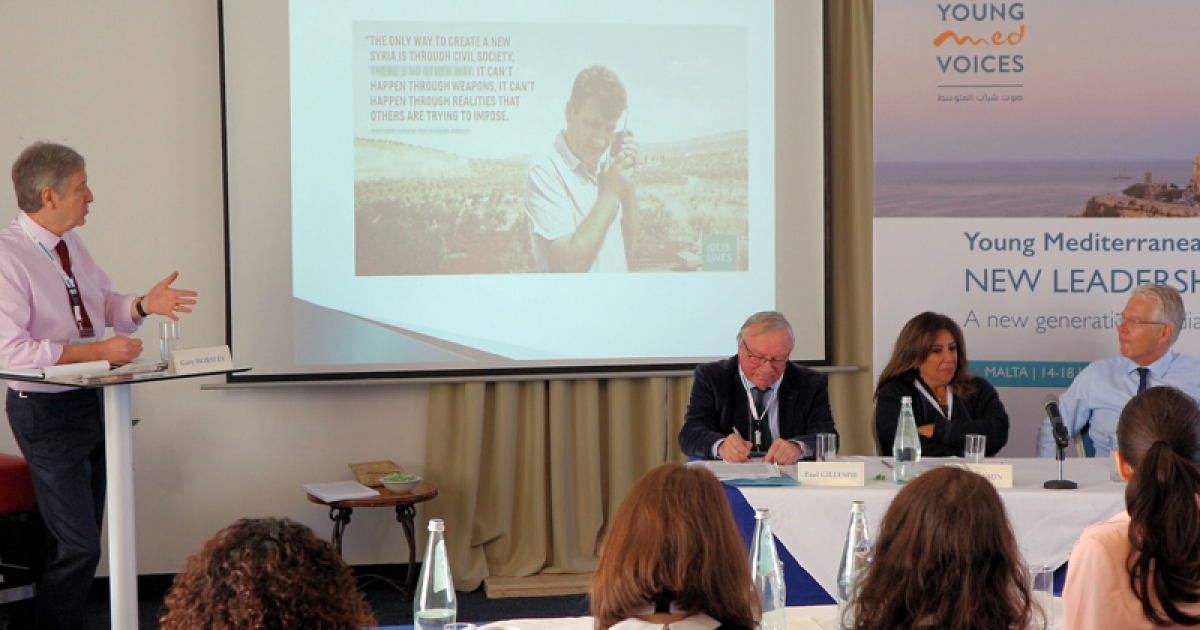“Leadership Gets an Apprenticeship”
Should we be doing something to shape the skills that leadership need? If so, how do we go about it? One option is to take a group of young people who might well feature as the leaders of tomorrow and expose them, today, to working at the highest levels with those already in the job.
This was the model chosen when 20 selected participants from countries south and north of the Mediterranean recently spent a week in the company of politicians, diplomats, academics and media professionals in Malta. The context was the first New Leadership Seminar in the Anna Lindh Foundation’s Young Mediterranean Voices programme (1). Hosted by the Mediterranean Academy of Diplomatic Studies (2), the seminar offered proof that there is sufficient talent among today’s young people to meet the challenges of tomorrow. It also generated calls for the young to feature straight away.
Good leadership
The programme for the week-long event took in a wide range of activities seen as crucial to good performance in a leadership role:
- training in leadership skills
- working together to address key topical challenges
- learning how to work with the media to positive effect
- understanding what it takes to reach policymakers
- practising advocacy with political figures past and present
“You are setting an important precedent today: Young women and men from both shores of the Mediterranean - acting, leading, speaking truth to power, and bringing concrete actions to help shape a more peaceful and secure common future”.
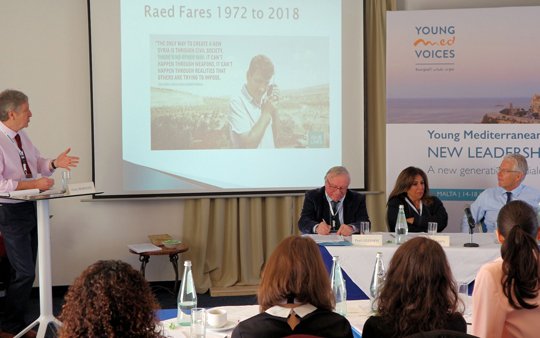
The 20 young people involved, initially, strangers to each other, had to learn to work together in different policy areas and then to work as a team in getting their ideas heard and understood by seasoned practitioners in relevant areas. Face-to-face contact with some of the most influential figures in the region reached its culmination in an address by two members of the team to foreign ministers at the January meeting of the 5+5 Dialogue on the Western Mediterranean (3). And despite the permutations of nationalities, ages and professions assembled for the exercise, there was cohesion in the messages it produced.
Participant Manal Benani from Algeria, addressing the ministerial meeting, made a plea for greater youth involvement in policy-making:
Youth represents about 60% of the population of the region, yet their presence in the process of decision making is almost zero. We want to be involved in designing, implementing and monitoring policies related to our areas of concern.
His words were echoed by Malta’s Foreign Minister, Carmelo Abela, and broadcaster & Global Thinkers Forum Global Growth Partner Stephen Cole, who both said planning for what young people will do tomorrow is a waste of time when they have so much to offer today. And the evidence from the meetings of participants with distinguished figures such as the Acting President of Malta, Dolores Cristina, European Commission HRVP, Federica Mogherini, and the ministers of the 5+5 Dialogue, was that the young have ideas, opinions and proposals that should not be ignored.
“Youth represents about 60% of the population of the region, yet their presence in the process of decision making is almost zero. We want to be involved in designing, implementing and monitoring policies related to our areas of concern.”
Shaping narratives
The day participants spent in the company of senior journalists from north and south also proved that they understand the need to shape their ideas and narratives in such a way that sympathetic interests will be keen to work with them in delivering the type of future they want. They heard from the journalists themselves what makes good news stories and how different media aim for different approaches in the way they present news. They spent time working with the journalists on topics they had selected for news coverage, finding ways to shape their stories so that they appealed both to the specific needs of the different media and to their various audiences.
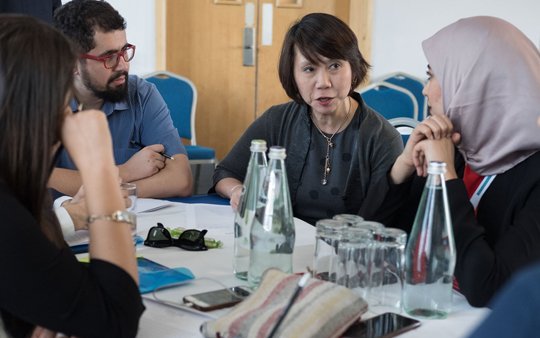
A week is supposedly a long time in politics but is not really enough to insert a new group into the policy-making framework of a region as complex in its needs as the Mediterranean. It was, though, long enough to show that policy-makers ignore the young at their peril because quality of the sort demonstrated in Malta will not sit back quietly and wait to be told when it can have a go. And with other events in the ALF/YMV series, with yet more keen and talented young people involved, coming up through the year, this is a message that will be repeated often and loud.
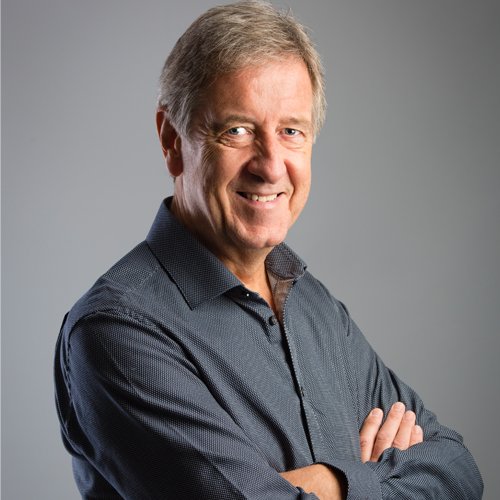
Gary Horsley
Founder EuroMed Media Network
For more than 35 years Gary has been a consultant on international communications issues, helping to shape strategies that reach out to client audiences, markets and partners across the globe.
During that time he has worked with major industrials, professional services, government departments and NGOs, helping them to communicate effectively across different cultures. He has extensive experience of working with European and other international institutions, devising strategy and managing communications actions for areas as diverse as EU external relations, R&D, development, and humanitarian operations.
For much of the last 12 years, Gary was at the heart of a media consultation involving journalists and associated media interests from EU Member States and the countries on the Union’s borders to the South and East. Discussion and analysis in more than 30 conferences, seminars and workshops tackled key issues for the region: migration, terrorism, human rights, racism and xenophobia, reporting conflict and media freedom. It also resulted in the coming together of a network of journalists focused around common professional interests. With Gary’s guidance, progressive cooperation between those involved led in 2017 to the establishment of the EuroMed Media Network, now cooperating with GTF on media issues.
Published: 04/02/2019


